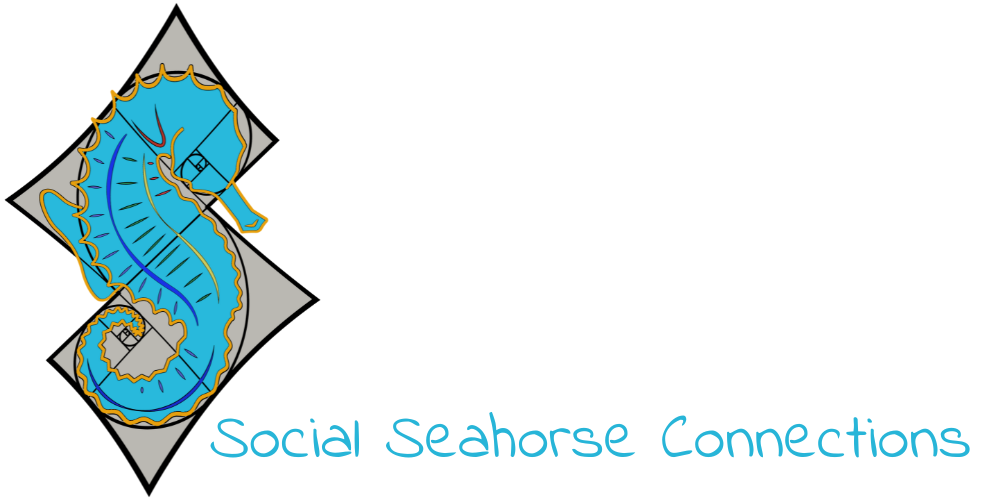
Years ago, I was sitting around a table with a group of colleagues where most were reacting negatively to some of my more conservative viewpoints – they didn’t care for what they considered my liberal stances. The next day, a different group of colleagues from the same organization took issue with what they considered my liberal viewpoints. To them, I was too liberal in my beliefs. For the first group I was too conservative.
It was then that I realized I didn’t fit neatly into either group. That was a tough place to be; I didn’t feel like I belonged anywhere. I didn’t feel accepted because I didn’t line up with all the belief boxes each group wanted ticked in order to belong.
I have seen this in other life areas as well:
- Some of the people I hike with consider me slow; others think I hike too fast.
- While homeschooling, some groups considered my eclectic methods too non-traditional and chaotic; others thought I was too mainstream in my educational approach.
- Some fellow sea kayakers consider my trips boring and others too adventurous to join.
This used to bother me considerably because it means one doesn’t fit into “the” group (whichever one it is at the time). And, as humans we all need to belong.
As I got older, I realized that while I do tend to lean one direction or the other, I also am infinitely curious about how other people do things. I’m intrigued by beliefs and values, how they form, and why people embrace the ones they do.
Understanding various viewpoints and where they originate, especially those we don’t agree with, benefits relationships rather than hinders them.
Since the election, I’ve appreciated people sharing their stances through social media posts, emails, and conversations. This is a time to communicate one’s position clearly.
The most unexpected place an inspiring message about connection came from this week was a subscription service I belong to for podcasting. The Podcast Collaborative brings together those who seek to be guests with over 2000 of those with podcasts who are looking for guests.
Their advice for finding connection with those holding opposing views is applicable not just for podcast hosting, but for all conversations in which we interact with those with values and beliefs different than our own.
Qualifiers before we begin
Before examining this valuable and timely guidance, let’s review a few important qualifiers.
The following advice for connecting with others is framed by three caveats concerning opinions, position, and boundaries. Without these guidelines, using the suggestions could harm either yourself or your relationship with the person you’re engaging with.
All opinions are not equal
If someone expresses to me that they think it’s good practice to routinely lock children in cages, I’m not going to take an “agree to disagree” position with them. Some opinions are wrong and dangerous and should be treated as such.
Clear is kind
Brené Brown promotes the “clear is kind” message. This means that being clear and direct in your communication, especially when discussing difficult topics, is ultimately the kindest thing you can do for someone. If you don’t agree with a person’s stance, don’t make it seem as if you do.
To have meaningful conversations that foster connection, we need to be brave and clear about our position.
Use your boundaries
Identify your conversation and relationship boundaries. Practice them. Use them. Know and respect others’ boundaries. Know which topics you are willing to engage in and under what guidelines.
Connecting with others
Okay, let’s get to the good stuff!
Curiosity is key
The first point the Podcast Collaborative email makes is to lead with curiosity.
Set the tone of a conversation by being genuinely curious. Ask questions. Find out the “whys” behind beliefs. Have a goal of understanding the other person, their position, and how they got to that place.
The email makes the point that when we can have respectful, productive conversations with people who see the world differently, it inspires others to do so as well. It helps us understand one another. We still likely won’t agree but will learn and understand things we may have not known before about the person and their beliefs.
Perspective over position
The second piece of advice to podcasters who find themselves on the other side of a topic is to take the opportunity to share one’s experiences and values that shaped the view rather than focusing on convincing the other person. This shift to perspective focuses on the journey that has gotten you to your position rather than going toe-to-toe on the position itself. This approach gives the other person a chance to understand the context of your position.
Sometimes our goal may still go beyond understanding with us wanting to sway the other person to our way of thinking, and it’s helpful to both share how we got to our positions as well as being curious to understand how others arrived at theirs.
Common ground foundation
Finally, we can almost always find common ground with others. Start there. Build a foundation of agreement.
Hiking? We might establish that everyone on the hike that day wants to enjoy nature while getting exercise.
Homeschooling? We might establish that we want the best educational outcomes for our children.
Sea Kayaking? We might establish that safety is important to everyone paddling that day.
Politics? We might establish that a strong economy is good for our country.
Think of a shared goal, value, or experience to form a foundation for your conversation, which can serve as the backdrop for the finer points each of you shares.
Honing your skills
When disrespectful dialogue is what we most often observe, difficult conversations during times of turmoil feel especially challenging. It can make us want to avoid conversations with those of differing viewpoints altogether.
I believe this is a time for more conversations and more connections, not less.
I’ve been studying and teaching communication skills for decades, and I find it incredibly challenging, yet it’s always worthwhile.
I’ve provided some of my favorite resources below. Check them out.
Golden Connection Challenge:
During a conversation this week, practice one listening skill you know or have recently learned.
If you are feeling particularly confident in your communication skills, engage someone with an alternate viewpoint from yours in conversation, being curious, sharing perspective before position, and setting a foundation based on common ground.
For the ultimate challenge, if you have a story to tell, head over to The Podcast Collaborative website and consider offering to be a guest on a podcast that is a good fit. (You can get a link to their Facebook page from the website.)
I’d love to hear about your experiences with a comment here or email me using the contact form.
